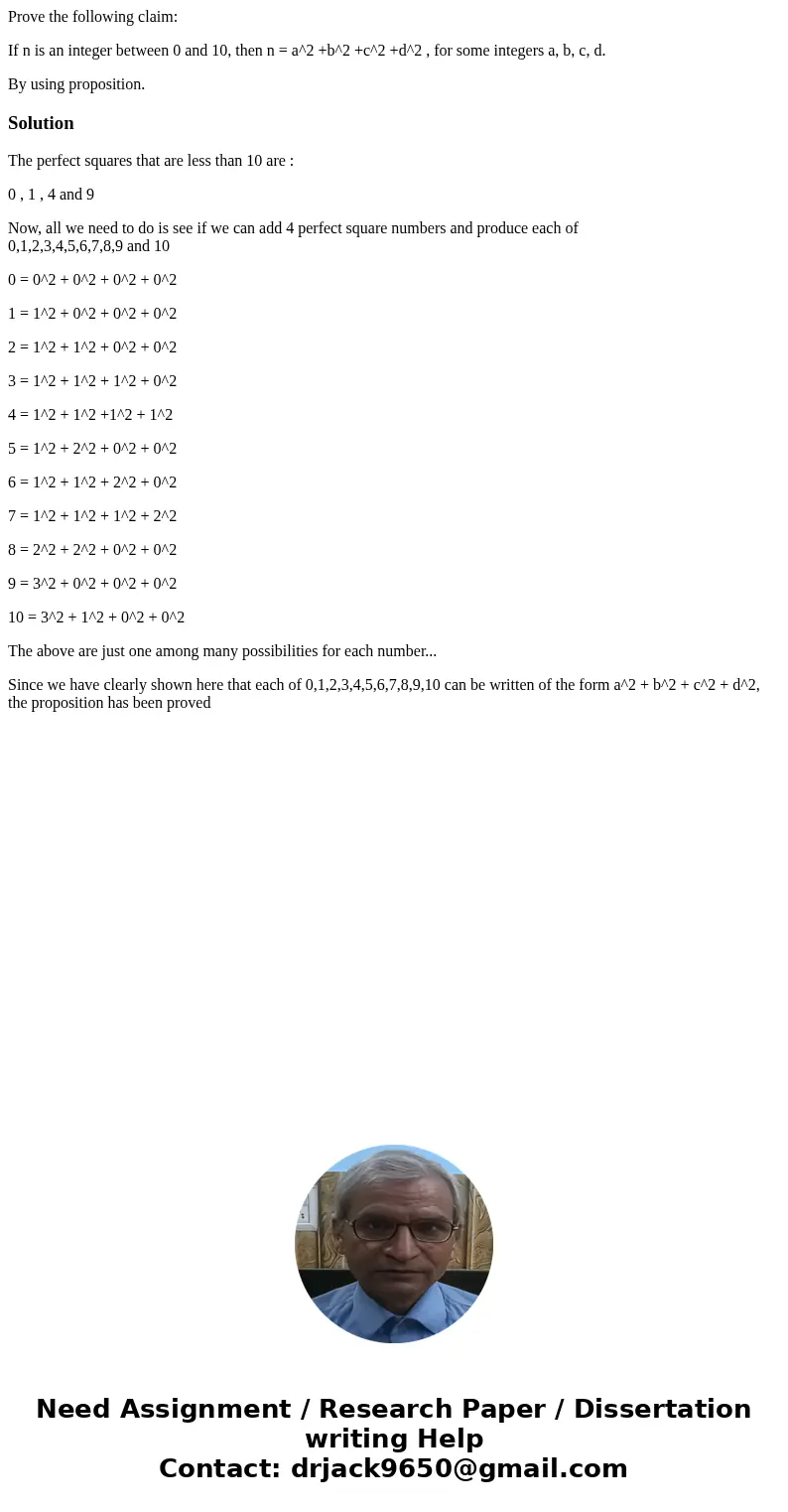Prove the following claim If n is an integer between 0 and 1
Prove the following claim:
If n is an integer between 0 and 10, then n = a^2 +b^2 +c^2 +d^2 , for some integers a, b, c, d.
By using proposition.
Solution
The perfect squares that are less than 10 are :
0 , 1 , 4 and 9
Now, all we need to do is see if we can add 4 perfect square numbers and produce each of
0,1,2,3,4,5,6,7,8,9 and 10
0 = 0^2 + 0^2 + 0^2 + 0^2
1 = 1^2 + 0^2 + 0^2 + 0^2
2 = 1^2 + 1^2 + 0^2 + 0^2
3 = 1^2 + 1^2 + 1^2 + 0^2
4 = 1^2 + 1^2 +1^2 + 1^2
5 = 1^2 + 2^2 + 0^2 + 0^2
6 = 1^2 + 1^2 + 2^2 + 0^2
7 = 1^2 + 1^2 + 1^2 + 2^2
8 = 2^2 + 2^2 + 0^2 + 0^2
9 = 3^2 + 0^2 + 0^2 + 0^2
10 = 3^2 + 1^2 + 0^2 + 0^2
The above are just one among many possibilities for each number...
Since we have clearly shown here that each of 0,1,2,3,4,5,6,7,8,9,10 can be written of the form a^2 + b^2 + c^2 + d^2, the proposition has been proved

 Homework Sourse
Homework Sourse